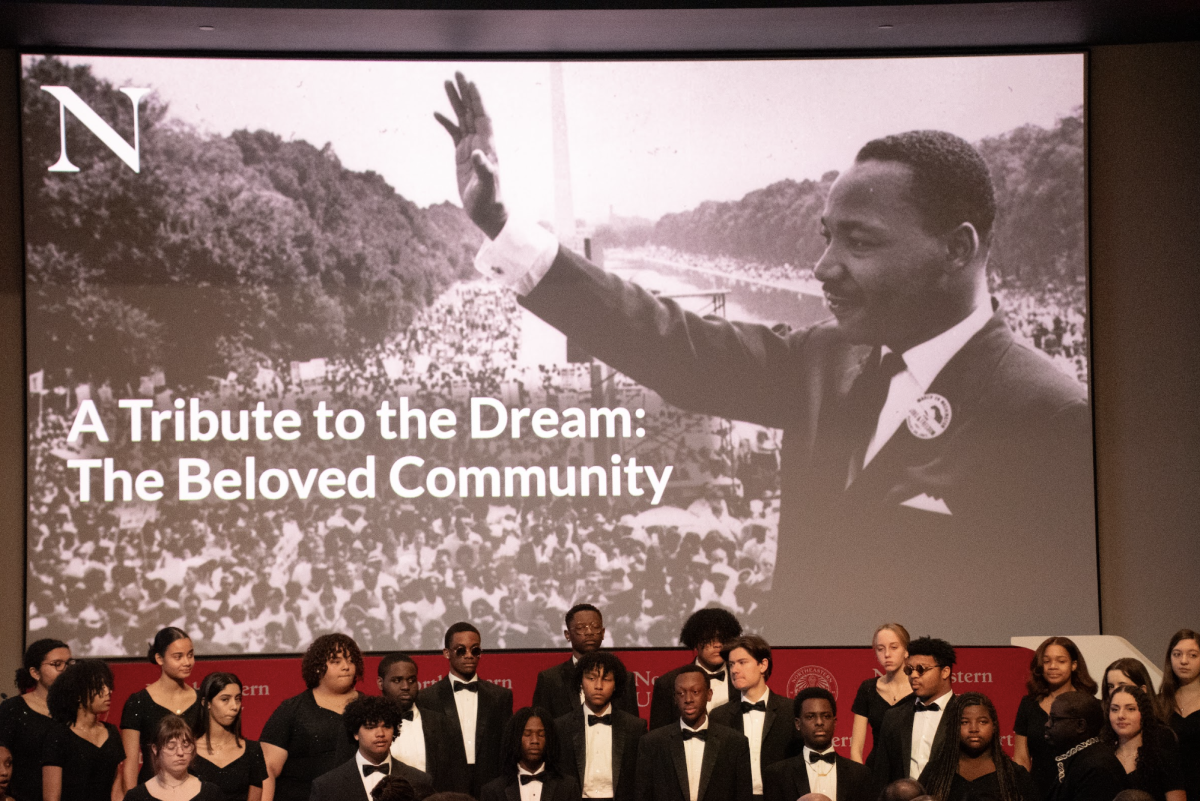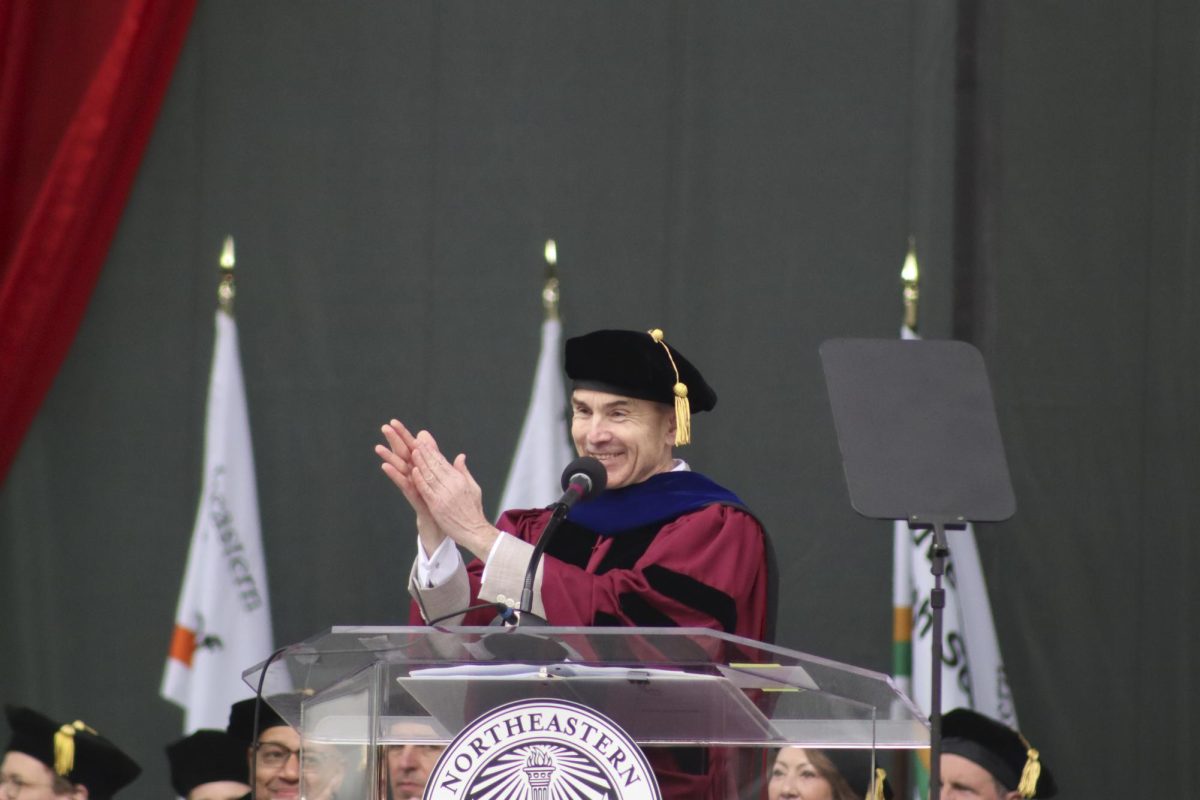By By Erin Kelly and Anna Rice, News Staff
This fall, Mayor Thomas M. Menino will run for an unprecedented fifth term against city councilors Sam Yoon and Michael Flaherty and South End developer Kevin McCrea, who all said they believe Boston is ready for a change after 16 years under Menino. The preliminary Sept. 22 election will narrow it down to two candidates, who will face off in the general election Nov. 3.
The candidates all said they made efforts to reach out to local college students during this election, but some students said they hadn’t heard anything about it.
‘I haven’t seen any signs or fliers [about the election] on campus, but I know Menino and the other candidates are always out in the community getting to know different people,’ said Claude James, a senior African American studies major and Boston resident.
James said he cares about initiatives concerning Boston’s public education system because he wants to be a teacher.
Erin Maiullari, a middler biology major who is also a resident of Boston, said she thinks public safety is an important issue that affects students. But she didn’t think the candidates had put enough effort into reaching young people.
‘I really haven’t seen or heard anything about the election around campus,’ she said.
The News spoke to the candidates about their campaigns their opinions regarding issues that affect college students.
‘
Michael Flaherty
Michael Flaherty grew up in South Boston, where he witnessed drug crimes and violence firsthand, and has served as city councilor for 10 years, he told the News.
If elected mayor, his plans include creating more summer and year-round jobs for young people to keep them off the streets and instituting more effective communication tools to keep residents informed on crime statistics, he said.
Like the other candidates, Flaherty said he has made an effort to attract the support of local college students.
‘I believe that college students have been ignored for too long in our city,’ he said. ‘They make up a large portion of our population and need to be heard.’
Flaherty said he supports instituting late-night T service in Boston to help people who work night shifts and students who stay out late as well as to prevent people from drinking and driving.
He also said he was committed to accessing the student entrepreneurship market in Boston.
‘So many students attending our city’s colleges and universities have smart ideas for businesses and innovation, and yet their efforts are not supported locally,’ he said. ‘The city needs to take a more proactive role in facilitating the success of our new generation of founders’-who might create the next Google or Facebook ‘-so that they have a reason to settle and remain in Boston.’
Flaherty said he would work with universities to create a city environment that better supports new business ideas and technologies.
Flaherty also said that environmental initiatives were important to him, and that as mayor he would take steps to mandate the recycling of all construction debris and special event materials. He said he would direct local restaurants to provide their compostable material and kitchen trimmings to neighborhood gardens and city parks in exchange for reduced hauling fees.
‘Our city has received good marks for its bold energy and environmental goals,’ he said. ‘But now it’s time to put programs and strategies into practice that will make achieving’-and surpassing’-those goals a firm reality.’
‘
Kevin McCrea
Businessman and developer Kevin McCrea said he is dedicated to bringing honesty, professionalism and transparency to city government.
‘Public corruption erodes the fabric of society and keeps people from wanting to get involved,’ McCrea said in an e-mail to The News. ‘I will put an end to that.’
He also said he was committed to providing more jobs to inner city residents and improving youth education to reduce crime.
‘Crime is an education and jobs issue,’ he said. ‘I want to improve the Boston Public Schools through hands-on involvement. Part of that is getting our local institutions to be partners.’
McCrea said he tried to reach out to local students by requesting to be at university welcomings and registrations, but the universities would not allow him to participate.
He said he is still trying to get students involved in city politics by encouraging them to volunteer for his campaign and work on election day and by pushing for same-day voter registration.
He also said he is opposed to the ordinance known a No More Than Four, which limits the number of students who can live together.
‘I rent to students at Northeastern University who have been great over the years,’ he said.
Regarding environmental issues, McCrea said the city needs to take a more comprehensive approach.
‘I want to have our children’s classes and school books use words and problem solving that includes green ideas, like recycling and solar gain,’ he said.
‘
Mayor ‘ Thomas M. Menino
Menino has prioritized investments in colleges and students during his time in office, said Nick Martin, communications director for the Menino campaign.
‘One of Boston’s greatest assets is colleges, and Mayor Menino doesn’t want to see students come here just to go to school,’ he said. ‘[Menino] wants students to remain in Boston after college, bridging college life into a young professional life.’
Menino has worked on the creation of programs like One in 3, an organization that connects Bostonians between the ages of 20 and 34 and allows them to share resources, and Success Boston, a college completion initiative, Martin said.
‘Our responsibility doesn’t end when students graduate from Boston public high school,’ Martin said. ‘The mayor wants to make sure students also complete college.’
Menino has also invested in environmental and biking priorities. He plans to turn Boston into a more bike-friendly city through programs like Boston Bikes, which installed 500 bike racks and 8 miles of bike lanes across the city during the past two years, Martin said.
‘Recently, [Menino] settled a proposal to start a bike sharing program in the city which would be the first of its kind in the US,’ Martin said. ‘This is part of an initiative to make the city green transit oriented and improve transportation.’
Menino has enforced a community policing plan where police officers patrol the same neighborhood routinely to get to know the area as well as the community members. On a national level, Menino founded Mayors Against Illegal Guns, a coalition with Mayor Michael Bloomberg of New York, to advocate for more sensible gun laws, Martin said.
‘The mayor is proud of the accomplishments we’ve made so far, but this election is really about the people of Boston and what’s best for their future,’ Martin said. ‘[His] priorities are strengthening the neighborhood, strengthening schools, making the community safer, and with the economy we’re in, maintaining job training.’
Sam Yoon
‘
City councilor Sam Yoon has represented the city for almost two consecutive terms. Yoon is a former public school teacher and has worked as a community organizer and an affordable housing developer, according to his website.
Erin Leonard, an events coordinator for the Sam Yoon campaign and a senior cultural anthropology major at Northeastern, said Yoon proposed extending Massachusetts Bay Transit Authority (MBTA) hours and increasing its accessibility along with creating more affordable housing across the city for families and college students.
‘Before [Yoon] became a city counselor he worked in creating affordable housing for 10 years and is very passionate about it,’ Leonard said. ‘Right now college students are excluded from affordable housing, and he wants to include them.’
Yoon plans to build houses with’ eco-friendly roofs, plant more trees throughout Boston, make City Hall Plaza more environmentally friendly, create more bike lanes and extend the MBTA service routes, Leonard said.
‘Yoon wants to establish environmental programs that are good for the environment but also convenient for people,’ Leonard said.
Yoon wants to change the way things work in City Hall, she said.
‘The current system gives all the power to the mayor,’ Leonard said. ‘It’s an outdated system and most cities don’t do it anymore. You can’t have one person overseeing everything, you need a team of leaders that can work together and disagree. The mayor is not all-knowing.’
‘








